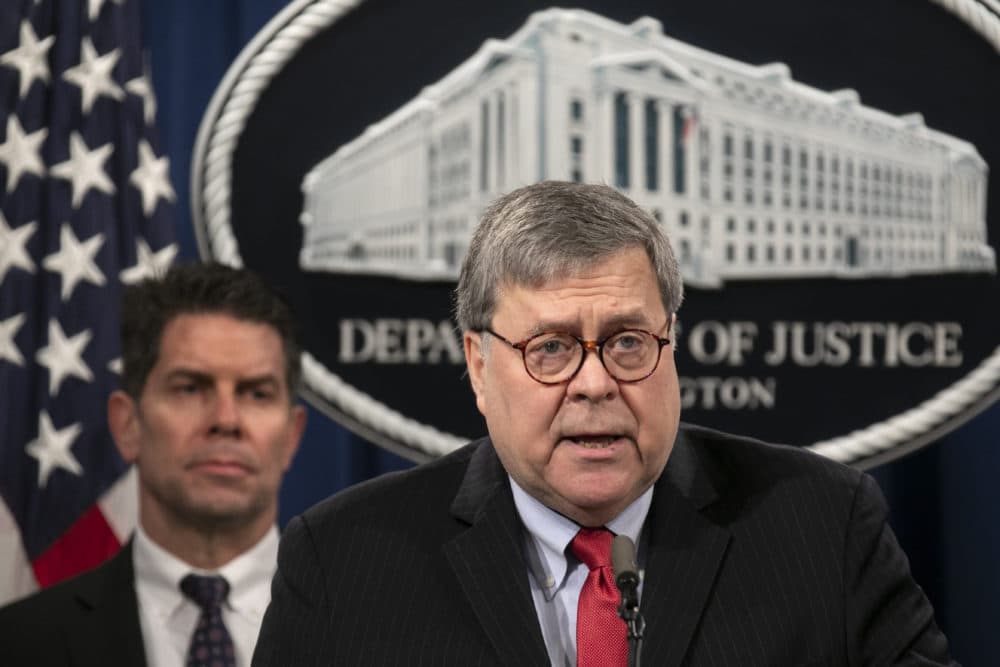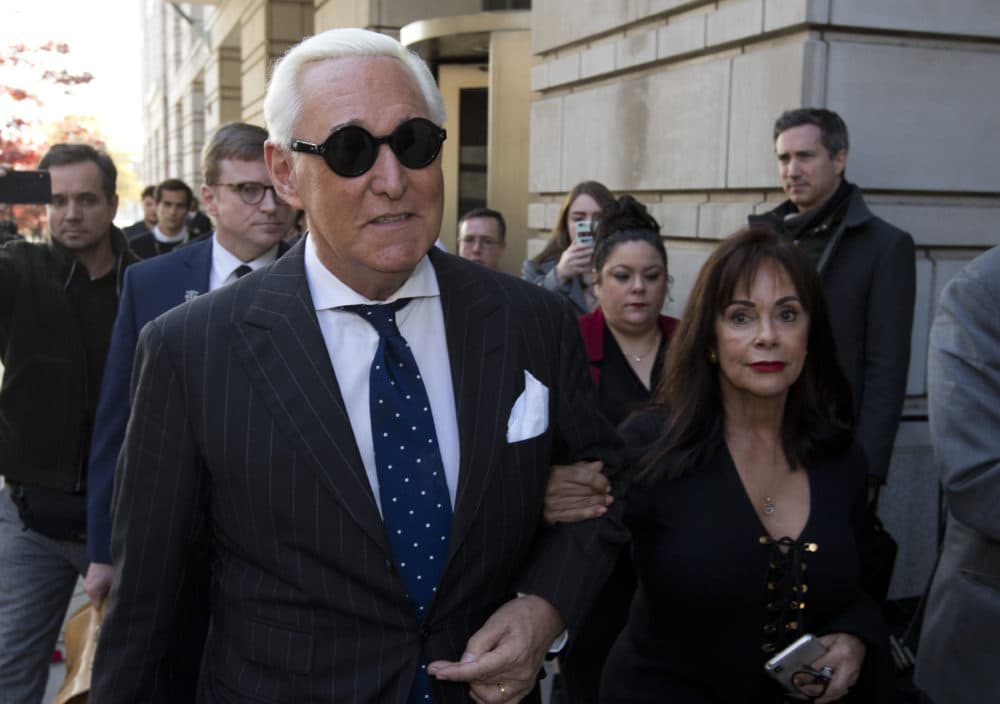Advertisement
Commentary
Barr’s Justice Department Is Ignoring The Lessons Of History

Why have four federal prosecutors withdrawn from the case they successfully pursued against Roger Stone, and why does it matter?
The four were “career lawyers” at the U.S. Department of Justice; they pursued criminal charges against Roger Stone, a friend and advisor of President Donald Trump, and their case produced a conviction on seven counts, including witness tampering and lying to investigators following Stone’s work for Trump's 2016 presidential campaign. Pursuing usual procedures, they requested a sentence of seven to nine years, which ordinarily would then be left to the judge for a decision.
But then, President Trump — apparently in response to strong lobbying through the media and perhaps behind closed doors — took to Twitter and called the situation “a miscarriage of justice.” His tweet actually said “cannot allow this miscarriage of justice.” Leaders at the Department of Justice submitted a revised request for a lower sentence — and the White House maintained it had nothing to do with the change.
Consultation by federal prosecutors with Justice Department superiors is common and most certainly occurred here, though the revised sentencing apparently involved those at the very top. The new filing walks back the very case the prosecutors pursued and that a jury accepted: that Stone threatened to injure his associate Randy Credico, even though a jury had found him guilty of intimidating him.
Why does it matter? It’s not about whether the proposed sentence is fair or apt; that is a question for the judge, who also receives a proposal from the defense counsel. Nor is it wrong for decisions such as a sentencing proposal by a U.S. Attorney to receive oversight by the leadership of the Justice Department.
Griffin Bell, who served as the attorney general under President Jimmy Carter, noted that under the Constitution the attorney general is responsible to the president and the president is responsible to the public. So, he said, "true institutional independence is therefore impossible." But he stressed "the president is best served if the attorney general and the lawyers who assist him are free to exercise their professional judgments."
The very public rejection of the sentencing proposal for Roger Stone matters because it shows a critical guardrail falling under the administration of President Trump.

Ensuring that the power of criminal prosecution and sentencing adhere to the rule of law and are not tools of partisan politics became an urgent task in the United States after the resignation of President Richard Nixon. Nixon tried to use the FBI and the CIA to hobble the Watergate investigation; he fired key law enforcement officials who would not follow his directions in what became known as the Saturday Night Massacre. The Justice Department under Nixon had five individuals in the post of attorney general in six years, and several were criminally indicted. Congress afterward enacted measures to limit presidential power and prevent similar abuses in the future.
One of President Gerald Ford’s most significant acts was to appoint Edward Levi, president of the University of Chicago, as attorney general and charge him with restoring faith in the legitimacy of government and adherence to the rule of law. The Justice Department had lost the trust of the nation when it failed to maintain the proper separation between the political sphere and the department’s functions.
Without public confidence in the integrity of investigations and prosecutions, respect for the criminal process, convictions and the rules themselves can crumble.
As attorney general, Levi’s reforms included guidelines regulating the scope of FBI activities, such as surveillance and domestic regulation. Levi reinstated the ideal of professionalism and adherence to separation of powers and the rule of law in his speeches and in his leadership. Levi devised institutional rules and structures to guarantee the integrity of the Justice Department’s actions. He candidly acknowledged the faults past actions, and he radiated the values of reason, moderation and impartiality.
Now would be a good time for members of the bar, and current leadership of the Justice Department, to read Levi’s book, “Restoring Justice: The Speeches of Attorney General Edward H. Levi.”
Levi warned against intense partisanship. The partisanship of our current time is, if anything, more corrosive than when Levi was attorney general. There is a risk that only Democrats will hold the Department of Justice — and the president — to the standards of justice and impartiality that have made the rule of law in the United States so strong.
Without public confidence in the integrity of investigations and prosecutions, respect for the criminal process, convictions and the rules themselves can crumble.
